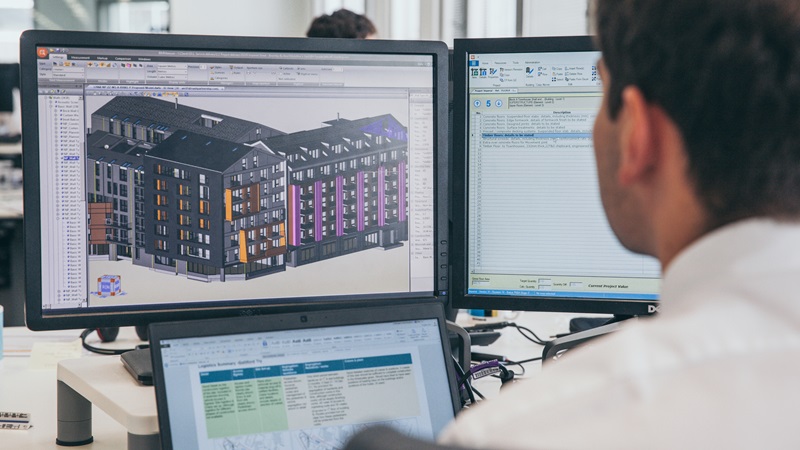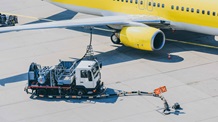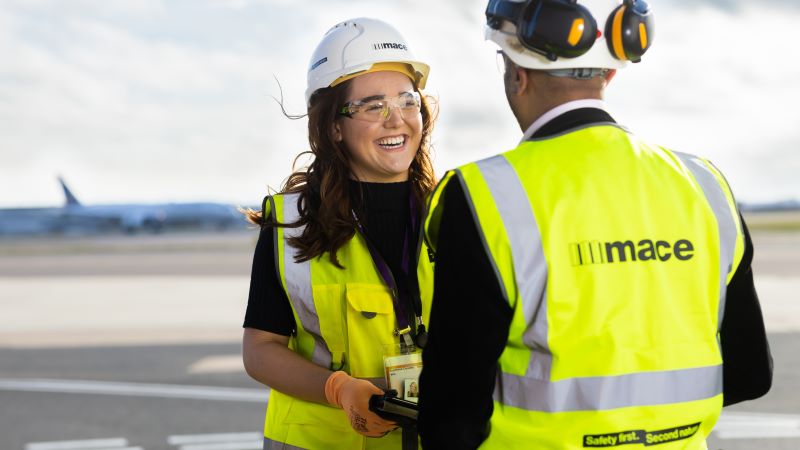Learning from a crisis – a new model for global PMOs
Forming. Storming. Norming. Performing. These four - now infamous - words were first put forward by American psychologist Bruce Tuckan in 1965 to describe how new teams come together, develop and hopefully deliver. Even though so much has changed in the intervening 70 years, his ideas are still a useful tool used by many projects and programmes who eagerly wish to get to the ‘performing’ stage as quickly as possible.
With tight timelines and costs to manage, one of the biggest challenges for large and complex infrastructure schemes around the world is how to effectively bring people from different backgrounds, organisations and countries together so that the right talents and skills can be used to deliver the right outcomes.
Thanks to the world-leading capability and reputation of UK companies in managing some of the most demanding, important and difficult global projects, integration and mobilisation is a particularly important issue for those buying British expertise and for companies like Mace deploying their knowledge and teams internationally.
Many people are eagerly looking forward to life after the COVID-19 pandemic, which is increasingly within reach as vaccines prove successful and are rapidly being deployed. While the pandemic has undoubtedly caused suffering, upheaval and challenges it has also forced people to move at pace to find new solutions and ways of doing things - some of which are far better than what came before.
Project Management Offices (PMOs) are at the heart of project and programme decision making, integrating people from around the world, establishing the tools that allow people to collaborate, collecting the data to inform key decisions and creating the processes that support teams as they mobilise, grow and start ‘performing’.
Until the pandemic, many organisations would immediately want to see as many ‘people on seats’ as possible in their new site office after the start of a commission. Internationally and regionally within the UK, practically meeting this demand from day one was a near impossible challenge due to things like visa arrangements, lease agreements, logistics, diligent recruitment processes and personal family circumstances.
This traditional mindset has been challenged over the last 12 months, with sectors from road, rail and aviation to major events and residential realising what can be achieved remotely using modern digital technologies and capabilities.
For our global real estate clients none of this was actually particularly new. With such broad and diverse portfolios, these types of businesses already knew that in practical terms people cannot be on the ground all the time. Instead, they have established global PMOs, centralised into regional hubs, remotely planning and collaborating, gathering project data to inform decisions and remotely quality assuring to check progress.
These approaches and technologies are now being deployed in site offices and being used by Mace to support global clients in all sectors and geographies through the rapid and remote mobilisation of teams in the first 100 days. This approach, of course, allows projects to progress during the pandemic but, more importantly, reduces deployment costs (by around 15-20%), improves productivity and consistency across projects, provides better information, ensures a focus on getting processes and platforms up and running, and reduces delays in mobilisation.
Perhaps counter-intuitively, effective remote mobilisation can lead to improved communications, transparency and knowledge sharing. Typically when a large number of people and teams deploy to a project office, the 100 day mobilisation plan can be knocked off course, people presume what other people know without checking and team collaborative systems are delayed or never happen because their need is not realised. The opposite is true when people are working remotely. A concerted effort to communicate is essential, tools that allow people to share documents and work together in real time are essential, and establishing the right processes are mission critical.
One particularly good example of how this works in practice is in our work with the Government of Peru on their large-scale reconstruction programme after damage caused by El Niño Costero storms in 2017. We drew on Mace colleagues from Singapore, Africa, Middle East, the UK and South America to put together a world-leading capability to deliver for the people of Peru. Traditionally this project would have needed around 50 people to be present in-country from the outset, but with a digital PMO approach we were able to effectively deploy those skills and expertise from overseas saving time, money and, perhaps most importantly, carbon emissions. Crucially, by getting this early mobilisation right, we set the platform for longer term success, which hinges on being able to bring talented local people into the team quickly and efficiently.
The active focus on these basic but essential ingredients has allowed our teams and clients not only to function during the pandemic, but to move from forming to performing in a far quicker time than previously possible.
So, as national lockdowns begin to subside and international travel finds its feet once again, we will hopefully return to some level of normality over the next 12 months. At the same time, we should hold on to these lessons, innovations and technologies and guard ourselves against falling back into old habits and embrace a new normal because sometimes the old ways aren’t always the best.















